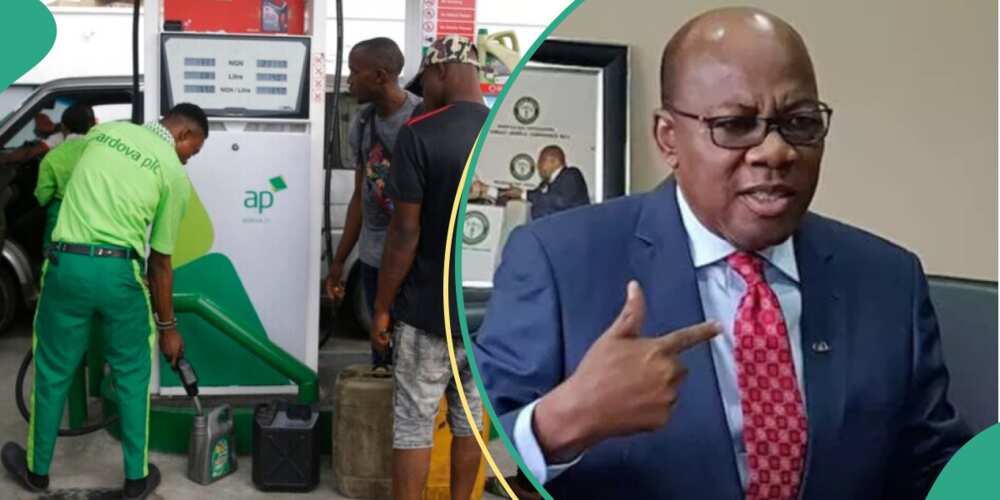"Price Will Drop to N300/litre": Agbakoba Proposes How FG Can Reduce Petrol Cost for Nigerians
- Olisa Agbakoba has declared that a sharp reduction in the price of petrol to N300 per litre can be achieved
- The civil rights lawyer has offered a strategy by which the FG can attain this much-needed reduction in petrol price
- He suggested that the NNPC should supply crude oil to modular refineries in Nigeria at naira rates rather than in dollars
PAY ATTENTION: Unlock the best of Legit.ng on Pinterest! Subscribe now and get your daily inspiration!
Legit.ng journalist Victor Enengedi has over a decade's experience covering Energy, MSMEs, Technology and the stock market.
Olisa Agbakoba, a former President of the Nigeria Bar Association (NBA), has advised the Federal Government on how to reduce the petrol price to N300 per litre.
Agbakoba, a Senior Advocate of Nigeria (SAN), called on the Federal Government and the Nigerian National Petroleum Company Limited (NNPCL) to consider alternative strategies to ensure a reduction in fuel prices.

Read also
"N750/Litre": Petrol price increase coming as ex-depot price rises by 7.6% as Dangote requests crude
Since the removal of the fuel subsidy by President Bola Tinubu in May 2023, the price of petrol has shifted no less than two times.
Petrol is presently selling for between N580 and N617, depending on the location in the country.
The development comes as oil marketers have threatened that the price of the product may increase to N800 per litre in the coming weeks, given the increase in landing cost.
PAY ATTENTION: Donate to Legit Charity on Patreon. Your support matters!

Source: UGC
Selling crude oil to modular refineries in naira
According to Agbakoba, it does not make sense that the NNPCL sells crude oil to Nigerian modular refineries in dollars.
During an interview with Vanguard, the legal luminary suggested that the NNPC should supply crude oil to numerous modular refineries nationwide at a fixed naira rate rather than in dollars.
He said:
The price will drop to N300. I dare NNPC to try it; the price will drop. But if you sell it at the international market rate, how will those who are selling it locally source forex to buy and thereafter sell in Naira? They just have to jack up the price! That is the problem.
A return to a subsidy regime?
In response to the query about whether this would essentially reintroduce a subsidy, he maintained that it is a common practice for any nation to have policies regarding the pricing of essential goods when selling them to its citizens.
He said:
The fact that it can be sold internationally at a higher price does not mean you will sell your local produce locally at an international price. I think that is part of the problem.
Establishment of a national domestic crude reserve
He emphasised the need for Nigeria to establish a domestic crude oil program dedicated to local consumption and set aside a domestic crude reserve of between 400,000 and 500,000 metric tons for local consumption and to be sold locally.

Read also
ABCON reveals CBN's plan for black market operators as FG says more pain coming for speculators
He insists that creating a National Domestic Crude Reserve, from which crude oil can be supplied to refinery operators, would help eliminate additional expenses such as shipping costs, insurance, freight, and other related charges.
He also said an oil scheme denominated in naira would result in significant savings of 50% in prices and profoundly impact the nation, particularly in terms of transportation, food costs, services, and the overall economy.
Fuel Scarcity Looms as Marketers Stall Importation Over Forex Shortage
In related news, Legit.ng earlier reported that some oil marketers in Nigeria lamented the inability to access foreign exchange.
The marketers said the development may affect their scheduled importation of petrol.
The interruption in the planned schedule, they also say, may affect the delivery of the product to Nigerians.
Source: Legit.ng

